
Peter Trudgill
11 December 2024
The Farage garage barrage

The pronunciation of his name has always been debatable, but its origin seems clear enough – and it’s not from the Huguenots
Read the full article04 December 2024
Monolingual world rule

Trump is descended from immigrants and has a multilingual family. Why is he not more tolerant of bilingual arrivals?
Read the full article27 November 2024
Words that were borrowed but never returned

Many languages, including English, contain loan words ‘borrowed’ from other languages. But there is one notable exception – Icelandic
Read the full article20 November 2024
Chagrin of the Chagossians

This ethnic group of Afro-Indian origin have their own language, derived from French after their ancestors were brought to the islands as slaves
Read the full article13 November 2024
Was Ludwig van Beethoven actually a famous Belgian?
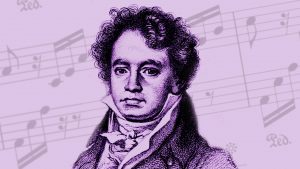
Discussions on whether there are any famous Belgians often throw up the same names – but very rarely is Beethoven one of those suggested
Read the full article07 November 2024
In praise of small boats
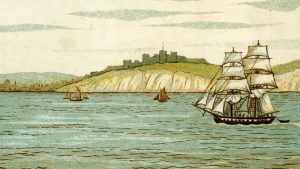
Our English language was brought to us across the North Sea by boatmen landing on the east coast
Read the full article30 October 2024
Joe Green and a name to envy

What links Philip Glass, Volodymyr Zelensky and Giuseppe Verdi?
Read the full article23 October 2024
The same but different

Contronyms – words like ‘sanction’ and ‘cleave’ – are a puzzling phenomenon in English, in that they have two opposite meanings
Read the full article09 October 2024
Fishing for gold in Paris

The word repechage was heard regularly at this summer’s Olympics, but its modern usage bears little relation to its original meaning
Read the full article02 October 2024
What makes a good Burgher?

Why does the Sri Lankan cricket squad have a player with such an English-sounding surname as Mathews?
Read the full article25 September 2024
Talking Türkiye

President Erdoğan wants English speakers to pronounce his country’s name differently. Will he succeed?
Read the full article18 September 2024
The chaotic origins of gas

Flemish physician Jan Baptist van Helmont was the first to recognise gases other than air, and coined the word ‘gas’, from the Greek ‘chaos’
Read the full article11 September 2024
Why athletes are good sports

Reports about the Olympic Games in Paris illustrate the differences in sporting language between American and British English
Read the full article04 September 2024
Mind your Ps and Ts

What do you get when you mix Ancient Greek with Scottish Gaelic? An almost flightless mountain bird
Read the full article28 August 2024
Modern talk in Ancient Rome

Many slang and everyday Latin words, rather than upper-class vocabulary, shaped modern languages such as French and Spanish
Read the full article21 August 2024
Making merry with placenames

In medieval times a ford over a stream would have been somewhere to play, and this is reflected in their names
Read the full article07 August 2024
Wherefore art thou?
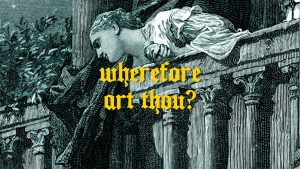
One of the most famous questions in English literature is often misunderstood by modern readers
Read the full article31 July 2024
Following the garden path

This technical terminology is easily understood and describes the act of parsing playful sentences that are designed to confuse
Read the full article24 July 2024
Taking divan inspiration

Rather surprisingly, the French word for ‘customs’ is related to the English word for a low sofa-bed
Read the full article17 July 2024
By the rivers of Anglia
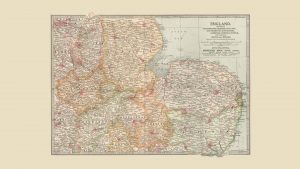
Some of England’s waterways are named after the towns they flow through, rather than the other way round – a process known as back-formation
Read the full article10 July 2024
A medieval jig with a violin

Why are the German and English names for stringed instruments so different?
Read the full article03 July 2024
The long and the short of it
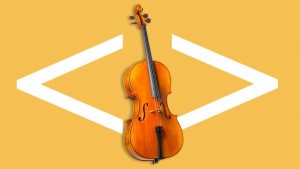
The addition of suffixes to indicate a change in size is a common feature of many languages – but the word ‘cello’ is a unique example
Read the full article26 June 2024
Hello from the other side

The use of the word ‘hi’ as a greeting in Britain began in the early 1960s – probably influenced by American TV programmes and films
Read the full article19 June 2024
Language on the move

The geographical spread of Romansh in Switzerland is shrinking as speakers start to use the German of their near neighbours
Read the full article12 June 2024
Me, myself and muggins here
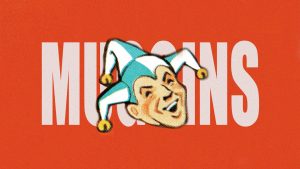
Its origin is uncertain, but the term ‘muggins’ is one of the very few alternative first-person pronouns to ‘I’ and ‘me’ in the English language
Read the full article05 June 2024
Hispaniola: an island divided
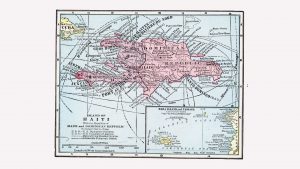
Most people in Haiti speak Kreyòl, while their eastern neighbours speak Spanish
Read the full article29 May 2024
How old is language?

Even the world’s most prominent linguistics experts cannot agree on when humans first acquired the capacity for language
Read the full article22 May 2024
A sea change in language

Between 350AD and 600AD, ‘boat people’ took Brittonic Celtic across the Channel from south-west England to Normandy and Brittany
Read the full article15 May 2024
Standing out in Central Asia
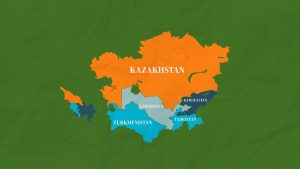
The word is linguistically Persian, but most of the ‘stan’ nations are now inhabited by speakers of Turkic languages
Read the full article08 May 2024
A peach of a soprano

How Australian singer Nellie Melba – born Helen Porter Mitchell – took her new surname from a mill stream in Derbyshire
Read the full article01 May 2024
The language suffering from excess passion

The word now used to denote enthusiasm has come a long way from its early days when it was most often used in connection with Christ
Read the full article24 April 2024
No rest on top of the world
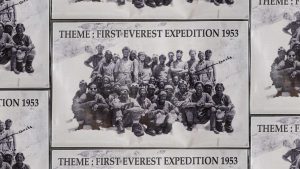
It sits on the border between Tibet and Nepal, but Everest is best known by its English name – given in honour of a Welsh geographer
Read the full article